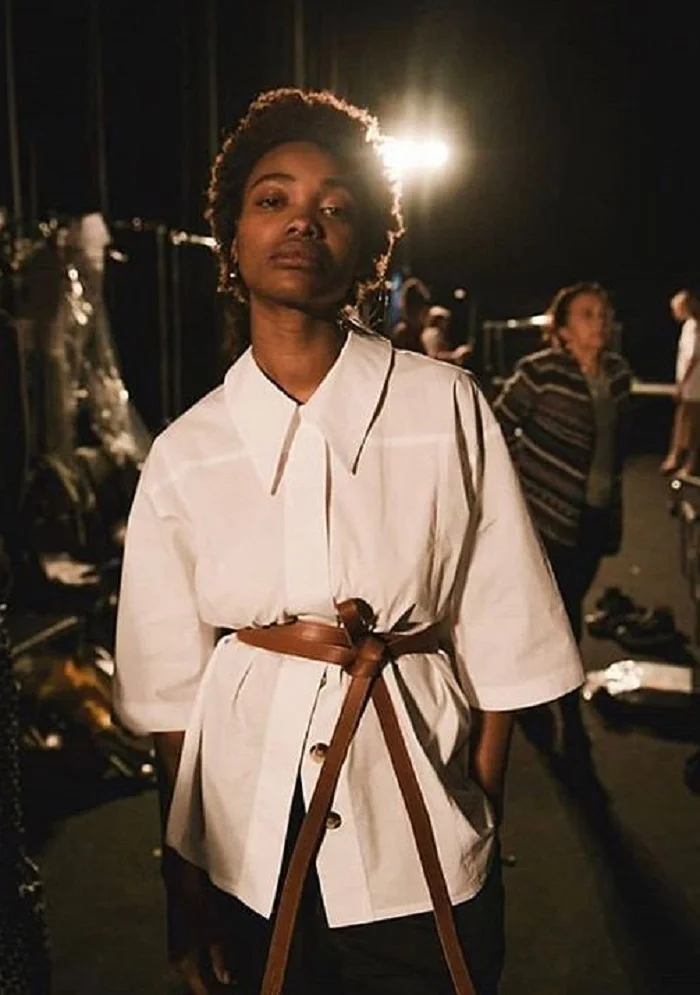Israeli Model Yoshevah Jones Black Hebrews As Tablet's Armin Rosen Expands Convo
/Vogue’s Liana Satenstein sits down with Tel Aviv model Yoshevah Jones, described as Israel’s most in-demand face. Jones identifies as a Black Hebrew.
For background, the Black Hebrew movement was founded in Chicago by Ben Ammi Ben-Israel (born Ben Carter). who considered it a radical exit from America during the height of the civil rights movement. Mr. Ben-Israel was a prophet-like figure who claimed that he had a visitation from the angel Gabriel in 1966, in which he was encouraged to lead an exodus of black Americans to Israel. Mr. Ben-Israel led a group of about 400 black, mostly Chicagoans first to Liberia for two years, and then the 100 or so followers, who wanted to continue, on to the small Israeli town of Dimona, about two nours north of Tel Aviv.
Members of the group do not consider themselves Jewish, writes Satenstein, but do observe similar holidays (Passover, Shavuot, Rosh Hashanah), in addition to their own celebrations such as New World Passover, honoring the exodus of Black Hebrews from America. Leading a non-kosher vegan lifestyle, the Black Hebrews believe eating vegan will lead to eternal life. “We were tivonim [vegan],” says Jones. “We couldn’t have anything that was processed, even chips. It was totally plant-based.” Female members also keep the laws of tzniut, or modesty, meaning that the knees, arms, and collarbones should be covered.
Black Hebrews, unlike Ethiopian Jews, who just recently began a renewed legal immigration to Israel, lacks many rights, in spite of living in Israel for over 50 years. Jones describes the relationship as ‘fractured’. “I’ve always felt different being around the Israeli society, mainly because in the community they made sure to tell us that we were different,” says explains, noting that she was taught Hebrew in school in Dimona.
In an interesting twist of self-reliance and inner confidence, Yoshevah Jones separated herself from the Black Hebrews community at age 18 and joined the Israeli army to obtain her Israeli citizenship. Since 2003, this route to Israeli citizenship became an option for Black Hebrews in 2003. “There was no way I could be in this closed community. I thought there was more to life,” she says. “Everyone thinks the army is their way out.” Her military service as a communications technician afforded her the opportunity to meet a wide range os Israelis from Orthodox to secular.
Now a resident of Tel Aviv, a married Jones has a 2-year-old daughter. She has not been to the U.S. and considers Israel home by default. “It is hard: You don’t belong here and you don’t fit in over there,” she says of her Israeli and American identity. “I don’t feel on this side or that side. I don’t know where I belong.” That said, modeling has helped her build confidence and find some middle ground. “It has taught me in a way that I am enough the way I am,” she says, adding, “I have really learned to accept myself more.”
African. Hebrew. Israelite.
It was pure coincidence that Armin Rosen’s Tablet Magazine article about the most successful African-American utopian separatist project in history found its way to my inbox this morning. The article is very definitely worth a read. Here’s a taste that resonates:
I visited Kfar Hashalom in January, when the desert air was cold and dry and relations between the African-American and Jewish communities were threatening to bottom out. The reasons were too complex for even a complete list to really capture: Prominent black activists like Marc Lamont Hill openly yearned for Israel’s nonexistence, while the Black Lives Matter movement accused the Jewish state of “genocide” and “apartheid.” Louis Farrakhan fulminated about Jewish “termites,” while his admirer Tamika Mallory led the Women’s March. Activist efforts to portray Israel as a fortress of American white supremacism, or even to blame the country for racism in the United States, have created a wedge between Jews and African-Americans within progressive contexts and beyond. Israel’s approach to Palestinians and African asylum seekers, and an American context that inclines certain Jews to think the worst about the intentions of black critics of Israel, doesn’t help things either.

